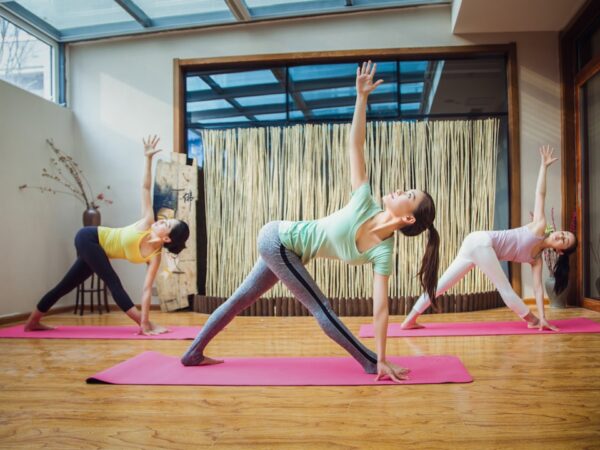Discover the Benefits of Walking
Walking is a fundamental human activity that serves as an accessible and effective form of exercise. This low-impact physical activity has been practiced throughout human history and offers numerous benefits for both physical and mental well-being. Walking can be performed in various settings, from urban environments to natural landscapes, and is suitable for individuals of all ages and fitness levels.
The versatility of walking allows it to be incorporated into daily routines or structured exercise programs, ranging from casual strolls to more vigorous power walking sessions. This article will examine the multifaceted advantages of walking, including its impact on physical health, mental wellness, social connections, and environmental awareness. Additionally, it will provide practical guidance on maximizing the benefits of walking as a regular form of exercise and lifestyle activity.
Key Takeaways
- Walking is a simple and accessible form of exercise that can be enjoyed by people of all ages and fitness levels.
- Physical health benefits of walking include improved cardiovascular health, weight management, and reduced risk of chronic diseases.
- Walking has mental health benefits such as reducing stress, anxiety, and depression, and improving overall mood and mental well-being.
- Social benefits of walking include the opportunity to connect with others, build relationships, and engage in community activities.
- Environmental benefits of walking include reducing air pollution, traffic congestion, and carbon emissions, making it an eco-friendly mode of transportation.
- To get the most out of your walks, try to walk for at least 30 minutes a day, vary your route, and incorporate strength and flexibility exercises.
- Embracing the benefits of walking can lead to a healthier, happier, and more connected life, so lace up your shoes and start walking today!
Physical Health Benefits of Walking
Cardiovascular and Muscular Benefits
Walking is a low-impact exercise that can have a significant impact on physical health. It helps to improve cardiovascular fitness, strengthen bones and muscles, and increase overall endurance. Regular walking can also help to lower blood pressure, reduce the risk of heart disease and stroke, and improve cholesterol levels.
Weight Management and Joint Health
Additionally, walking can aid in weight management by burning calories and boosting metabolism. It is also beneficial for joint health, as it helps to lubricate and strengthen the joints, reducing the risk of arthritis and other joint-related issues. Furthermore, walking has been shown to improve digestion and circulation, leading to better overall health and well-being.
Balance, Coordination, and Chronic Conditions
In addition to these physical benefits, walking can also help to improve balance and coordination, reducing the risk of falls and injuries, especially in older adults. It can also be a great way to manage chronic conditions such as diabetes, high blood pressure, and obesity. Overall, the physical health benefits of walking are numerous and can have a profound impact on overall well-being.
Mental Health Benefits of Walking

In addition to its physical benefits, walking also has a positive impact on mental health. It is well-known that exercise releases endorphins, which are natural mood lifters that can help to reduce stress, anxiety, and depression. Walking outdoors in nature can be particularly beneficial for mental health, as it provides an opportunity to connect with the natural world and experience a sense of calm and tranquility.
The rhythmic motion of walking can also have a meditative effect, helping to clear the mind and improve focus and concentration. Furthermore, walking can be a social activity, providing an opportunity to connect with others and combat feelings of loneliness and isolation. It can also be a form of self-care and self-reflection, allowing individuals to take time for themselves and prioritize their mental well-being.
Additionally, walking has been shown to improve sleep quality, which is essential for overall mental health. Overall, the mental health benefits of walking are significant and can have a positive impact on emotional well-being.
Social Benefits of Walking
| Benefits of Walking | Details |
|---|---|
| Improved Mental Health | Reduces stress, anxiety, and depression |
| Enhanced Social Interaction | Opportunity to connect with others while walking |
| Community Engagement | Encourages participation in local events and activities |
| Increased Sense of Belonging | Strengthens connection to neighborhood and community |
Walking is not only beneficial for physical and mental health but also for social well-being. It provides an opportunity for individuals to connect with others, whether it’s through walking groups, community events, or simply walking with friends or family members. Walking can be a great way to bond with others, share experiences, and build relationships.
It can also be a form of support for those going through challenging times, providing a listening ear and a sense of companionship. Furthermore, walking can be a way to engage with the community and explore new places, fostering a sense of belonging and connection. It can also be a way to give back to the community through charity walks or environmental clean-up efforts.
Overall, the social benefits of walking are diverse and can have a positive impact on overall well-being.
Environmental Benefits of Walking
In addition to its physical, mental, and social benefits, walking also has positive effects on the environment. Walking is a sustainable mode of transportation that does not produce harmful emissions or contribute to air pollution. By choosing to walk instead of driving or taking public transportation, individuals can reduce their carbon footprint and contribute to cleaner air and a healthier planet.
Furthermore, walking can help to preserve natural habitats and wildlife by reducing the need for new roads and infrastructure. It can also help to conserve energy and reduce the demand for fossil fuels. Additionally, walking can promote sustainable urban planning by creating walkable communities with pedestrian-friendly infrastructure.
Overall, the environmental benefits of walking are significant and can contribute to a more sustainable and eco-friendly world.
Tips for Getting the Most Out of Your Walks

To get the most out of your walks and maximize the benefits, consider incorporating the following tips into your routine: 1. Set realistic goals: Start with achievable goals and gradually increase the intensity and duration of your walks. 2. Mix it up: Vary your walking routine by exploring different routes, terrains, and environments to keep things interesting. 3. Stay safe: Be mindful of your surroundings, wear appropriate footwear, and stay hydrated during your walks. 4. Make it social: Invite friends or family members to join you on your walks or consider joining a walking group in your community. 5. Practice mindfulness: Use your walks as an opportunity to practice mindfulness and connect with nature. 6. Track your progress: Keep track of your walking habits and progress to stay motivated and accountable. 7. Listen to your body: Pay attention to how your body feels during and after your walks and adjust your routine as needed. By incorporating these tips into your walking routine, you can make the most out of this simple yet powerful form of exercise.
Embracing the Benefits of Walking
In conclusion, walking is a versatile and accessible form of exercise that offers numerous physical, mental, social, and environmental benefits. Whether it’s improving cardiovascular fitness, reducing stress and anxiety, connecting with others, or contributing to a healthier planet, walking has something to offer for everyone. By embracing the benefits of walking and incorporating it into our daily lives, we can improve our overall well-being while also making a positive impact on the world around us.
So lace up your shoes, step outside, and start reaping the rewards of this simple yet powerful activity.
If you’re interested in learning more about the benefits of walking, you should check out this article on www.golkakra.com. It provides valuable information on how walking can improve your physical and mental health, boost your mood, and even help with weight management. Whether you’re looking to start a walking routine or just want to learn more about the benefits of this simple exercise, this article is a great resource.
FAQs
What are the benefits of walking?
Walking has numerous benefits for both physical and mental health. It can help improve cardiovascular health, strengthen bones and muscles, and aid in weight management. Additionally, walking can reduce the risk of chronic diseases such as heart disease, diabetes, and certain types of cancer. It also has mental health benefits, such as reducing stress and improving mood.
How much walking should I do to see benefits?
The American Heart Association recommends at least 150 minutes of moderate-intensity aerobic activity, such as brisk walking, per week. This can be broken down into 30 minutes of walking on most days of the week. However, any amount of walking is better than none, so even short walks can provide some health benefits.
Can walking help with weight loss?
Yes, walking can be an effective part of a weight loss or weight management plan. It burns calories, helps to increase metabolism, and can contribute to creating a calorie deficit when combined with a healthy diet.
What are some tips for getting the most out of walking?
To maximize the benefits of walking, it’s important to maintain good posture, wear supportive footwear, and vary your walking route to keep things interesting. Additionally, incorporating intervals of faster walking or adding hills to your route can increase the intensity and effectiveness of your walks.
Are there any risks associated with walking?
Walking is generally a low-impact and safe form of exercise for most people. However, it’s important to be mindful of your surroundings and wear appropriate footwear to reduce the risk of injury. If you have any health concerns or medical conditions, it’s always best to consult with a healthcare professional before starting a new exercise routine.










